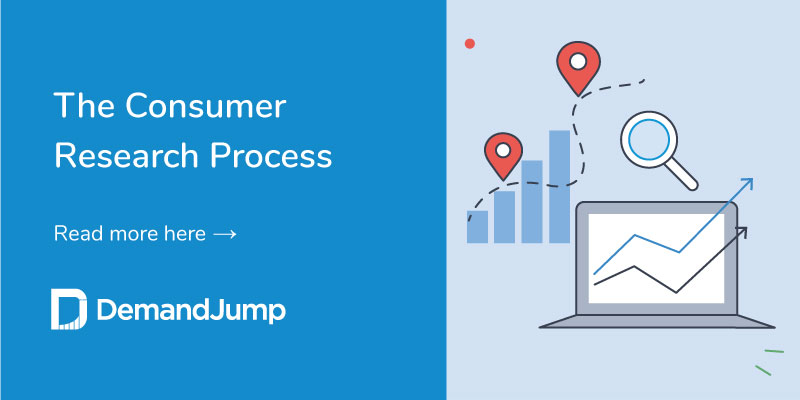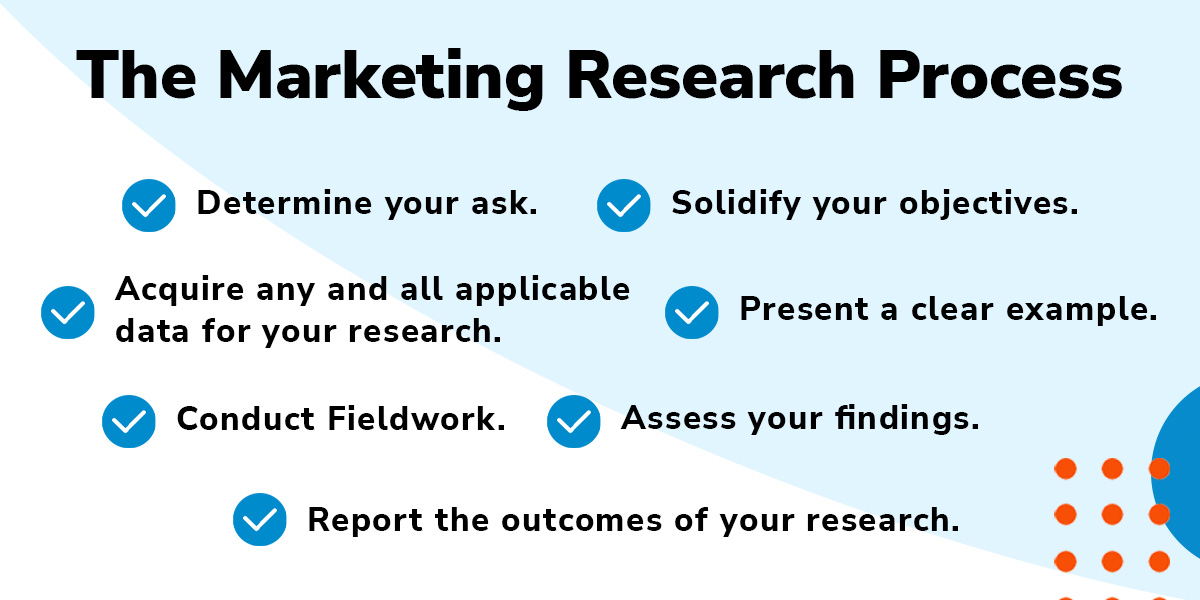The Consumer Research Process 101
February 12, 2021 •DJ Team

Consumer research is the process by which businesses track and analyze patterns of consumer behavior from the first clickthrough to the initial purchase. By assessing the data extracted from reports, SEO results, and direct communications with consumers, businesses have the upper hand in providing tailored experiences for a variety of personalities, backgrounds, and preferences.
A seamstress cannot tailor a pair of pants or a suit without first taking measurement. In the same way, before data can be used to tailor consumer experiences, you must have a plan of action in place, or your efforts will not reach their full potential. Let’s walk you through several steps that are crucial in creating an effective consumer research strategy.
Quantitative vs Qualitative Market Research
You may wonder, “What is the most important step in the marketing research process?” Don’t worry, we’ll tell you. Understanding the value of quantitative vs. qualitative market research is step one. These are both important because they will help you understand what your priorities are in your quest to acquire actionable insights.
- Quantitative research involves statistical data and analysis. Measuring actual behavior.
- Qualitative research pulls us away from the strictness of numbers and shows us a deeper view into the thought process of our customers. Qualitative research gathers the emotions and opinions about a specific product or service. Good research process examples involve implementing online surveys or initiating consumer panels.

What Are the 7 Steps in the Marketing Research Process?
- Determine your ask. If you don’t know what you’re looking for then you won’t know what questions to ask. To determine what your initial question is, you may want to look into what consumers are searching for in conjunction with consulting with other colleagues who have their hands in the research project, such as product developers and marketers.
- Solidify your objectives. Ensure that your marketing research team has clearly defined objectives that point out the directions in which your team should go. Goals that lack directions are just dream destinations.
- Acquire any and all applicable data for your research. This is where quantitative vs qualitative research comes into play. You may want to research the amount of people searching for a specific product or, alternatively, you may consider the emotional indicators of your intended audience to determine whether or not a product or service is effective.
- Present a clear example. Once you have your desired demographic, consider compiling consumers into a sample from which you can acquire strong insights. You also want to be sure that your sample size is large enough to accurately collect meaningful and measurable data. Try direct mail surveys or online customer satisfactions surveys to collect adequate insights.
- Conduct Fieldwork. Now, put that sample group to use! You may consider conducting field testing in the form of a focus group that spans over multiple weeks or months.
- Assess your findings. After you’ve gathered the information you need, assess the data to see where your strengths and weaknesses lie. Maybe customers preferred one product model over another. Either way, these are new insights that can bring grand success to your company.
- Report the outcomes of your research. Present your findings to company executives and other invested stakeholders to put action on the products or services that need the most improvement.

Jumpstart Your Consumer Research Process With DemandJump Today!
We know that gathering research can be time consuming. Consumer insight research must be assessed and updated frequently in order to get accurate results as consumer behavior is constantly changing.
With our platform, you’ll be provided deep consumer research tools and insights that are customized to your business. If you’re ready to get started automating your research, get started today with a free trial of the DemandJump Insights product.
Featured Articles
Categories
- Attribution Tracking (13)
- Channel Optimization (11)
- Consumer Insights (68)
- Content Marketing (251)
- Data Science (8)
- Digital Marketing (6)
- Digital Transformation (26)
- Enterprise (10)
- Lead Generation (14)
- Market Intelligence (8)
- Marketing Analytics (39)
- Marketing Attribution (57)
- Marketing Management (153)
- Marketing Operations (86)
- Organic Search (222)
- Paid Search (52)
- Pillar-Based Marketing (63)
- Programmatic Advertising (9)
- SaaS Content (14)
- SaaS Marketing (29)
- Search Marketing (111)
- SEO Keyword Research (28)
- SEO Pillar (18)
- SEO Strategy (46)
- SMB (5)
- Website Content (12)


